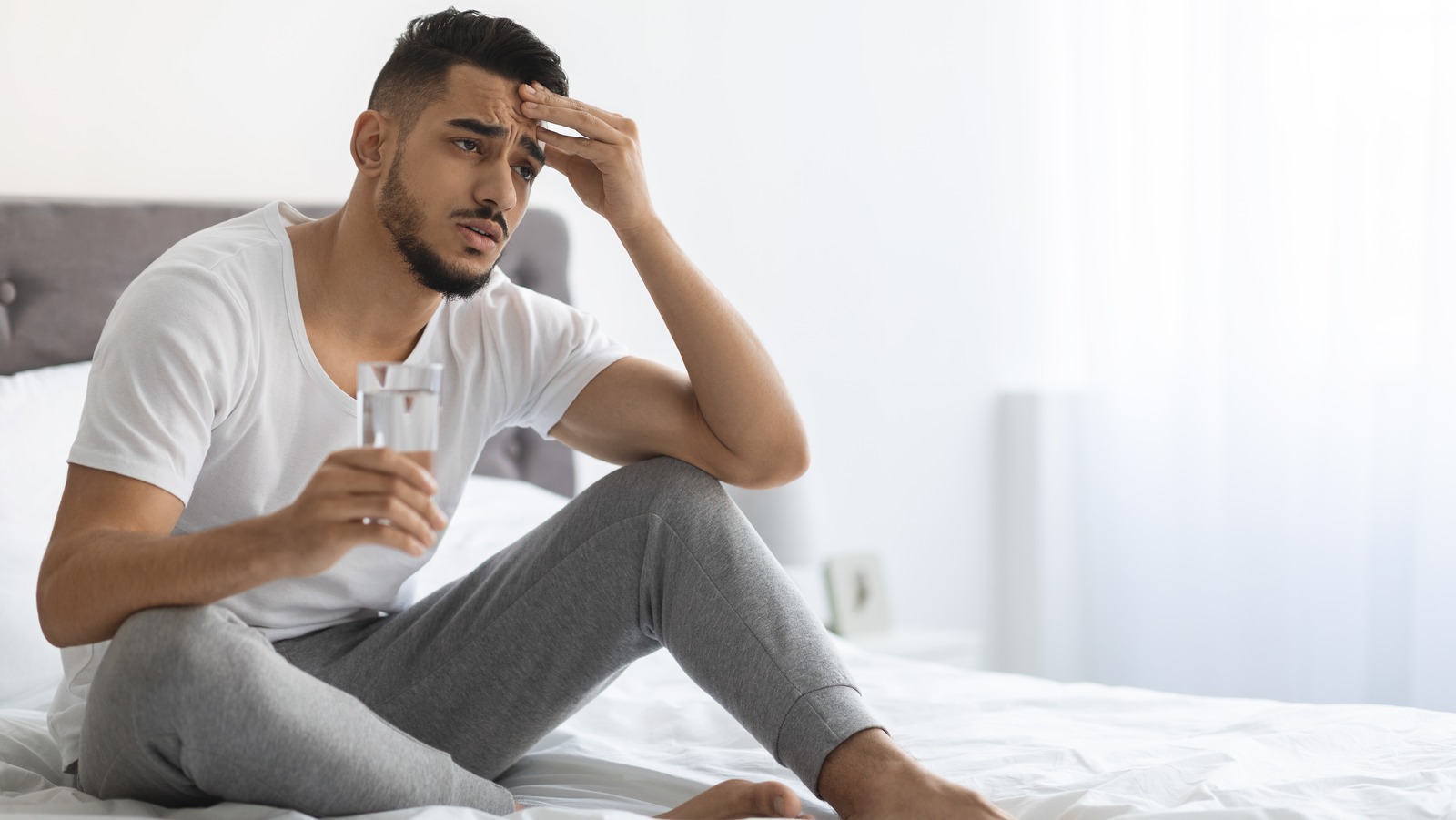[ad_1]

Throughout the course of the night, our blood alcohol levels progressively drop as we sleep (via Handbook of Clinical Neurology). This can affect how the body transitions between different phases of sleep, specifically REM and non-REM sleep. “When you drink, you actually fall asleep faster and go into deep sleep faster,” pharmacist John Mansour explained to Shape. As a result, research shows that we get less REM sleep (lighter sleep) during the night. The Sleep Foundation reports that REM sleep is critical for memory consolidation, dreaming, brain development, and more.
During the latter half of the night, sleep quality worsens and people often find themselves waking up during these hours. Mansour states that one reason this may occur is because the body undergoes what’s known as glutamine rebound as we snooze off a night of drinking. Glutamine is an essential amino acid that the body stops making when we consume alcohol. Once the alcohol has worked its way out of our system, however, our body becomes aware that glutamine levels have been depleted and it kicks amino acid production into high gear. It’s this activation that can then prompt us to wake up.
[ad_2]
Source link
